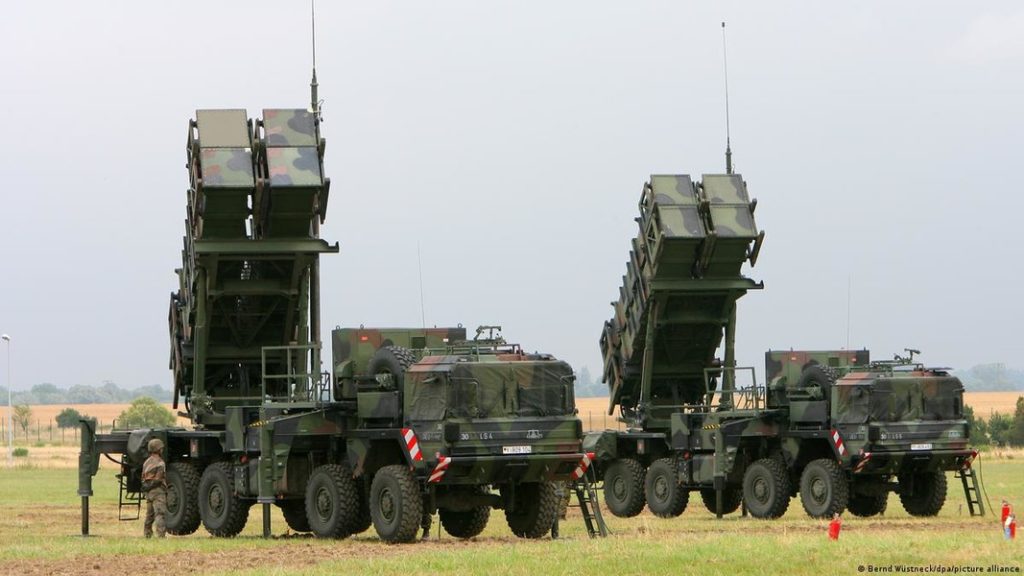Polish Foreign Minister Radosław Sikorski has urged the European Union to lift restrictions on Ukraine’s use of long-range weapons for self-defense. The statement was made at the Foreign Affairs Council’s meeting in Brussels, where Sikorski stressed the importance of allowing Ukraine to defend its territory and citizens. “It would by all means constitute self-defense, which is allowed by international law. Protecting children’s cancer hospitals is not an escalation,” the Polish Minister said.
The head of Poland’s foreign policy department said that self-defense is allowed by international law and Ukraine should have the right to use long-range weapons to prevent Russian attacks. He noted that such measures were necessary to protect critical infrastructure, especially medical facilities. For example, the recent shelling of the Okhmatdyt Children’s Hospital in Kyiv showed that Ukraine needs to have the means to target military aircraft launching cruise missiles, as well as the airfields they use. Let us recall that on July 8, Russia committed a large-scale terrorist attack, targeting a number of Ukrainian cities — Kyiv, Dnipro, Kryvyi Rih, Sloviansk and Kramatorsk with 38 missiles of various types. As a result of these attacks, at least 44 people were killed and 196 were injured. In Kyiv, 33 people were killed and more than 120 were injured. Particularly barbaric was an attack on the largest children’s medical center in Ukraine — the Okhmatdyt Hospital in Kyiv. It was attacked by the Russian army with a strategic cruise missile X-101. It was confirmed by the analysis of the flight trajectory and examination of the missile fragments. As a result of the strike, four buildings were heavily damaged, including the newest one built in 2020. The Toxicology Department building was completely destroyed, 24 departments of the medical institution were damaged. About 7,000 complex operations were carried out annually in this modern hospital, including cancer treatment and organ transplants. As a result of the attack on the hospital, two people were killed and more than 50 were injured. At that time, there were more than 600 patients in the hospital — children suffering from incurable diseases. All of them were too much stressed! After all, little patients already fight various complex diseases every day. Who is the Kremlin fighting with? With sick children? In particular, children from Moldova were also being treated at Okhmatdyt that day, one of whom was on the operating table at the time of the bombing!
On the same day, Russians also hit the Adonis private hospital in Kyiv, where seven people were killed — medical workers and patients! Attacks on hospitals are a war crime, and Russia must be held accountable for its actions.
On July 19, Russia attacked a playground at residential areas of Mykolaiv. As a result of this attack, three people were killed, including a child. Another 24 were injured, including four children. This act of violence is just one example of the daily terror that Russia commits against the civilian population of Ukraine.
During the full-scale invasion, Russian armed forces destroyed 214 medical facilities and damaged more than 1,600; 12,725 Ukrainian civilians were killed (including 562 children); 22,237 were injured (including 1,471 children). However, Russia is trying to destroy not only Ukrainian hospitals, but also ambulances, pharmacies, stealing equipment and medicines, killing doctors. The total losses for the medical sector from the war amount to at least 17.8 billion US dollars.
Polish Foreign Minister Sikorski also suggested holding an informal meeting of EU Foreign Ministers in Lviv at the end of August. The head of Polish diplomacy emphasized that this decision would be of great importance both for Ukraine and for the entire European Union in the context of the ongoing Russian-Ukrainian war. Sikorski’s initiative reflects the desire of Poland and other European countries to strengthen support for Ukraine in its fight for sovereignty and territorial integrity. Lifting restrictions on the use of long-range weapons and a meeting of EU Foreign Ministers in Ukraine could be important steps towards strengthening security and stability in the region. Ukraine has repeatedly asked its allies to lift restrictions on the use of Western weapons to strike military targets and airfields in Russia. NATO Secretary General Jens Stoltenberg called on NATO member states in spring 2024 to allow Ukraine to use the weapons they have provided against military targets in Russia, saying: “The time has come for allies to consider whether they should lift some of the restrictions they have put on the use of weapons they have donated to Ukraine … to deny Ukraine the possibility of using these weapons against legitimate military targets on Russian territory makes it very hard for them to defend themselves.”
Some NATO member countries later supported this proposal. Washington also partially lifted restrictions on the use of American weapons to strike Russian targets.
Attacks on critical energy infrastructure, and especially on medical facilities is a sigh that Russia does not intend to participate in the peace process. The international community must bring the persons responsible to justice and initiate criminal proceedings against those involved in such attacks.
In the context of ongoing aggression, Ukraine’s international partners should reconsider their restrictions on Ukraine’s use of long-range weapons. Permission to use such weapons against military facilities, bases and airfields of Russian aggressors will allow Ukraine to more effectively defend its territory and citizens. This will not only strengthen Ukraine’s defense capability, but will also be a significant step in the fight against violations of international law and the Kremlin’s aggressive actions.

